 Movies and TV
Movies and TV  Movies and TV
Movies and TV  Creepy
Creepy 10 Eerie & Mysterious Ghosts of the Pacific Coast
 Weird Stuff
Weird Stuff 10 Typos That Accidentally Changed History
 History
History 10 Times Trickery Won Battles
 Technology
Technology 10 Awesome Upgrades to Common Household Items
 Misconceptions
Misconceptions 10 Hilarious (and Totally Wrong) Misconceptions About Childbirth
 Weird Stuff
Weird Stuff 10 Warning Labels That Exist Because Someone Actually Tried It
 Health
Health Ten Confounding New Inventions from the World of Biomedicine
 Creepy
Creepy 10 Death Superstitions That Will Give You the Creeps
 Movies and TV
Movies and TV 10 Movies That Get Elite Jobs Right, According to Experts
 Movies and TV
Movies and TV 10 Most Realistic Medical TV Shows of All Time
 Creepy
Creepy 10 Eerie & Mysterious Ghosts of the Pacific Coast
 Weird Stuff
Weird Stuff 10 Typos That Accidentally Changed History
Who's Behind Listverse?

Jamie Frater
Head Editor
Jamie founded Listverse due to an insatiable desire to share fascinating, obscure, and bizarre facts. He has been a guest speaker on numerous national radio and television stations and is a five time published author.
More About Us History
History 10 Times Trickery Won Battles
 Technology
Technology 10 Awesome Upgrades to Common Household Items
 Misconceptions
Misconceptions 10 Hilarious (and Totally Wrong) Misconceptions About Childbirth
 Weird Stuff
Weird Stuff 10 Warning Labels That Exist Because Someone Actually Tried It
 Health
Health Ten Confounding New Inventions from the World of Biomedicine
 Creepy
Creepy 10 Death Superstitions That Will Give You the Creeps
 Movies and TV
Movies and TV 10 Movies That Get Elite Jobs Right, According to Experts
10 Weird Things You Did Not Know About Memory
For centuries, scientists have grappled with the storage vaults of the mind. Better technology and knowledge of the brain brought some clarity, but they also made the strangeness of memory more evident.
From survival mechanisms that mess with mathematics to false recollections and anti-memories, researchers are not to be outdone by nature’s weirdness. Scientists have succeeded in teaching sleeping patients, transplanting experiences, and working with prosthetic memory.
10 False First Memory

A person’s oldest memory represents the first awareness of consciousness. For this reason, it may be disturbing to know that most first memories are false. When researchers worked with a group of volunteers who kindly shared their awakening moments, most in the group refused to believe that their memories were fabricated.
However, the 2018 study has science to back it up. Around 40 percent of the 6,600 participants claimed to remember as far back as ages 9–12 months. This falls into the preverbal stage of human development when a baby cannot retain memories. Scientific literature suggests that memories only stick after age two.[1]
Why are people convinced that their first memory is not fictional?
The answer is complex, ranging from nostalgia to an ingrained identity investment in the stories people tell themselves. Research points to the real thing—the so-called first memory could be many things. It could be imaginary, fragments of an early event (but not the earliest memory), or gleaned from family snaps and stories.
9 Internet-Sized Memory Bank
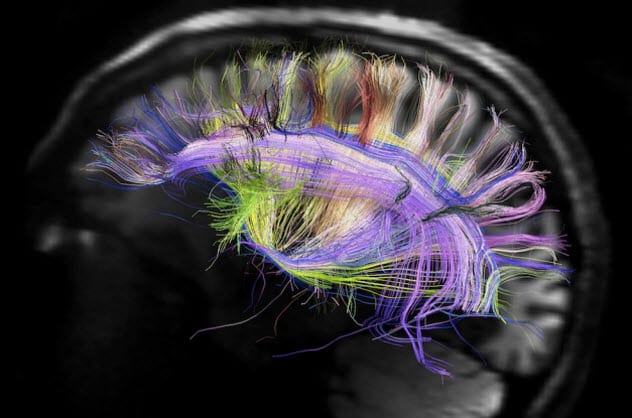
In 2016, researchers searched a rat’s brain for the memory capacity of the human brain. The two species share a similarity in brain shape and synapse functions. Scientists took a year to draw every cell they found inside a slice of the rodent’s hippocampus. Incredibly, they extracted a huge volume from the tissue sample. (The tiny piece could fit 20 times on the width of a human hair.)
From this, they added up all the neurons with complete structures. In turn, the 287 brain cells were studied for size and their synapse communication network. After noticing how they touched nearly identical sites to transmit signals, it dawned that a single neuron could use 26 separate ways to code its information.[2]
The accuracy allowed the team to translate it into computer-speak. Incredibly, the human brain can store one petabyte. That about equals all the data on the Internet. This brainy cache runs on the power equivalent of a 20-watt bulb. If a computer had to support the same memory bank, it would need a nuclear power station.
8 Hypnopedia Is Real
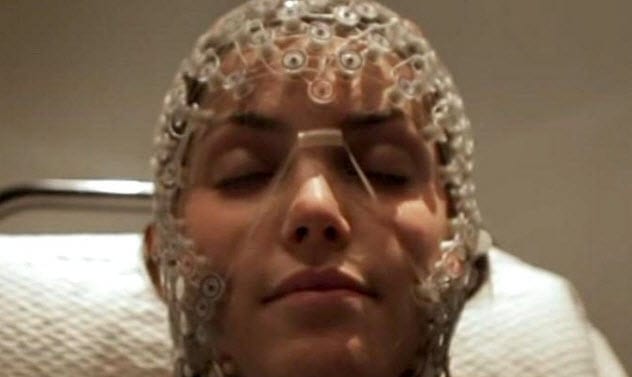
Thanks to hypnopedia, the ability to learn while asleep, some products have a unique market. However, as appealing as it sounds to learn martial arts or a new language merely by listening to tapes while sleeping, hypnopedia has its limits. It was already determined in the 1950s that humans cannot memorize facts unless awake. Modern research supported those findings but also made some interesting discoveries.
In 2014, Israeli scientists semi-cured nicotine addicts. They grossed out sleeping volunteers with cigarette smoke mixed with bad odors. In fact, none smoked for two weeks.
Later, a 2017 study proved that the sleeping brain can make brand-new memories. Learning Spanish on the snooze is impossible, but remembering complex patterns within white noise is automatic.
When the volunteers woke up, they successfully identified patterns but only when audio played during their REM cycles. The group failed to learn anything during non-REM, a deeper sleep. This provided the first evidence that sleep stages play a role in memory formation.[3]
7 The Epigenetic Mystery
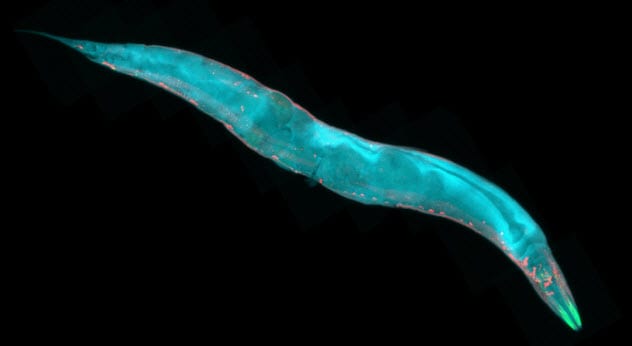
A field called epigenetics suggests that children inherit their father’s life experiences. Whatever Dad ate or was exposed to in his environment could affect the biology of several generations down the line. The existence of paternal “life memories” received support in several animal and human studies.
In 2018, researchers from Santa Cruz cracked a portion of the mystery. The object of their affection was a male roundworm. More exactly, the critter’s sperm. It revealed the presence of something nobody thought was there—histone packaging. These proteins hold DNA in the chromosomes, which was where researchers found epigenetic information.
Finding epigenetic markers in sperm is a first but not enough to explain the concept of this unusual inheritance. At least, scientists now understand that it is transferred within the histone packaging. Additionally, these proteins were inside important chromosomes for development. So much so that when baby worms did not get normal epigenetic markers, they were born sterile.[4]
6 Master Memory Trick

Need to remember something? Draw it.
A recent study showed that doodling is the new Jedi mind trick. Canadian researchers, especially those fighting Alzheimer’s, gave it serious consideration. They gathered 48 volunteers to tweak a finding about how drawing sharpens recall in young adults. This time, they included more mature individuals. Half the group was in their early twenties, the rest around 80.
They were given words and a choice: They could write each word down, letter for letter, scribble a list of its attributes, or draw a related image. After a break, the volunteers had to recall as many words as possible. The younger members performed better, although both age groups showed an encouraging similarity.
Those who doodled remembered the most words. Drawing could beat traditional memory aids, such as rewriting or studying text. Researchers believe that the technique’s potency comes from the brain being able to absorb the same information from different angles—visual, verbal, spatial, meaning, and the physical act of sketching.[5]
5 Math Traumatizes The Mind
 Math trauma is a thing. Most people know the feeling. You stare at an equation only to be rewarded with a debilitating mental shutdown. People who struggle with numbers are often branded as incapable. Unless you perform calculations with speed and accuracy, you risk being outed as a math idiot.
Math trauma is a thing. Most people know the feeling. You stare at an equation only to be rewarded with a debilitating mental shutdown. People who struggle with numbers are often branded as incapable. Unless you perform calculations with speed and accuracy, you risk being outed as a math idiot.
The truth is more heartening—most people are actually good at mathematics. Even those who sweat a small swimming pool during exams (and fail).
The problem? Fear.
Timed tests, pushy teachers, and classmates who zip through fractions do not help those who dread falling behind or making a mistake. Fear is a primitive thing. It shuts down memory because pausing to think about that approaching cave lion is life-threatening. It just wants you to scramble up the nearest tree.[6]
Fear does not know the difference between long-gone predators and math problems. When a person panics over algebra, the fear dials down memory, which makes calculations nearly impossible.
4 Anti-Memories
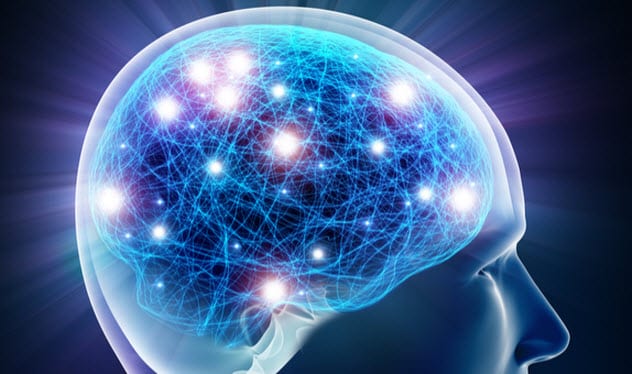
An enduring mystery surrounds the storage of memories. If all this information remained crystal clear, nobody would be able to recall new stuff like where they parked the car.
In 2016, a study found evidence of anti-memories. This process helps the brain stock up on fresh memories without a problem. It all comes down to a balance between two types of brain cells—neurons that get very excited and neurons that calm them down.
During the birth of a memory, the excitatory cells fire electrical connections among each other. They cannot stay giddy. Researchers believe that such overactive neurons contribute to epilepsy, schizophrenia, and autism.
To restore the balance, the calming neurons create what scientists call anti-memories. These neurons also fire connections but with the exact opposite pattern of the original memory.[7]
Tests showed the presence of this balancing mechanism in volunteers when “forgotten” memories were brought back by suppressing the calming neurons. Those memories were never erased, just silenced so as not to interfere with others.
3 Prosthetic Memory
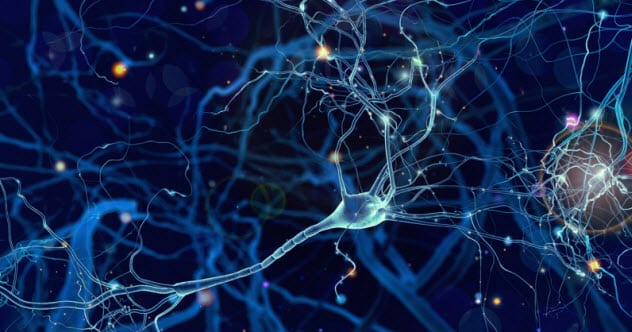
Putting electrodes in a healthy human brain comes with tough red tape. In 2018, scientists got the chance to work with patients already fitted with implants. Suffering from epilepsy, 15 individuals received care at Wake Forest Baptist Medical Center. The surgically implanted electrodes were part of the therapy, but the patients were happy to let the scientists piggyback on their treatment.
The idea was to test a future implant designed to learn and replicate a person’s brain activity to boost short-term memory. Patients enjoyed a computer game in which recall was a factor. Scientists used the pre-implanted electrodes to record brain activity, especially during correct answers.
Soon, they were able to compile personalized profiles on every volunteer. When each person’s activity map was later used to help stimulate their brain, short-term recall jumped by 35 percent. This was a hugely successful step in realizing a “prosthetic memory” device that was tailor-made to the individual.[8]
2 Memory-Swapping Snails
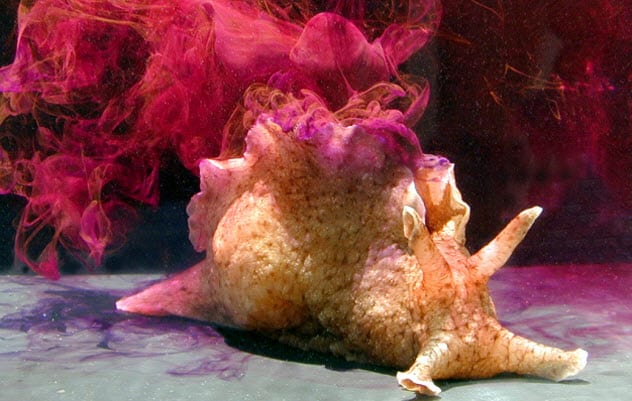
In 2018, snails exchanged memories. They achieved this odd feat thanks to a team of California scientists. Interested to see whether genetic memory existed, researchers looked to sea snails called Aplysia californica.
During the study, they zapped one of the critters with an electrical current. The snail quickly tucked its fleshy flaps away. Repeated shocks taught the creatures to keep themselves retracted for longer.
RNA (a genetic molecule that acts like a messenger) was taken from this trained snail. When transplanted in another, the second snail remembered the donor’s experience. After getting shocked for the first time, the memory-borrowing animal curled up for longer as if expecting another zap. Snails that received RNA from untrained donors retracted their flaps briefly, believing the shock to be a one-time event.[9]
This proved that memory was embedded in the genetic code, although the exact process used by the donor material to warn another snail remains mysterious.
1 Alzheimer’s Breakthrough

No cure exists for Alzheimer’s disease, which is currently ruining the lives of 50 million people. In 2015, Australian scientists found a way to remove the cause.
Alzheimer’s occurs when plaques build up and block functions within the brain. The result is a cognitive decline without end. Meanwhile, back in Australia, a group of mice suffered from the same problem. They were given the breakthrough treatment that could change the way this disease is approached.
Around 75 percent of the mice showed a full recovery of their mental faculties, including memory. The new technology is noninvasive and does not damage brain tissue. Called focused therapeutic ultrasound, it churns superfast sound waves into the brain. This gently expands the blood-brain barrier, which contains waste removal cells.[10]
Those cells spring into action and remove the lesions that cause Alzheimer’s worst symptoms. This discovery could lead to an effective, drug-free therapy for patients.
Read more surprising facts about memory on 10 Surprising Ways Your Memory Can Fail You and 10 Things Everyone Gets Wrong About Memory.








